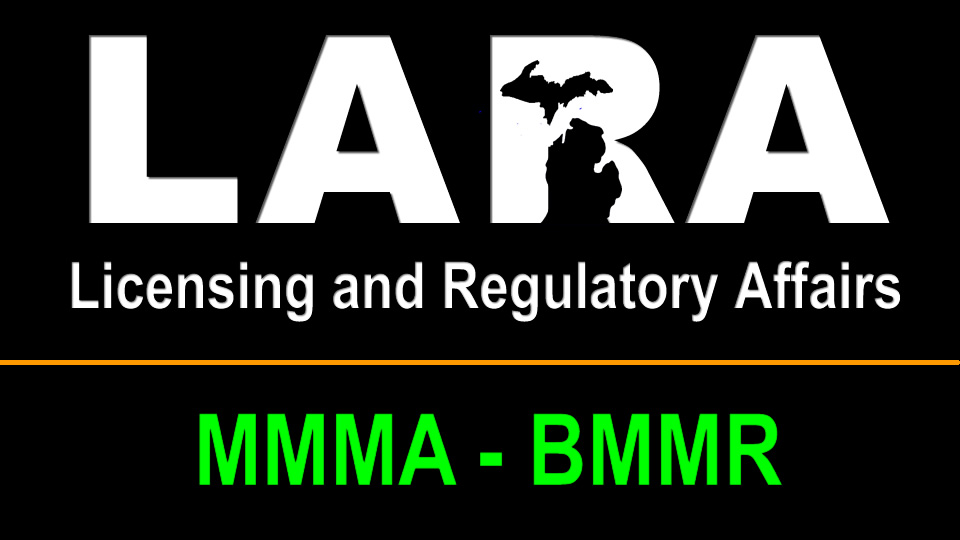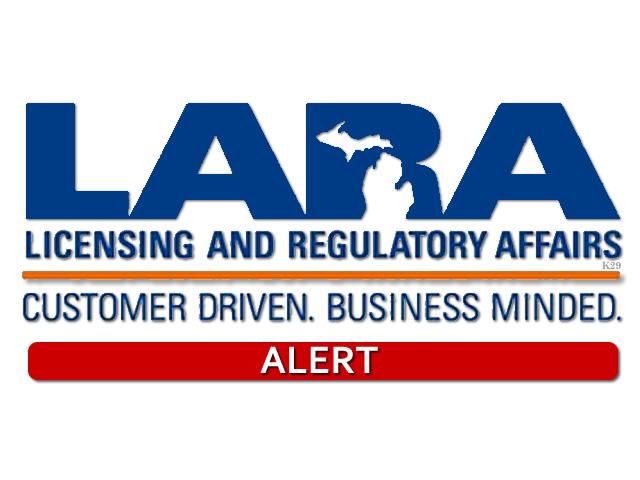
Jul 8, 2018 | Blog, Michigan Medical Marhuana Regulation
What will the costs be for a license?
The initial costs of a license at the state level include the application fee, the regulatory assessment. Additional costs at the state level are authorized under the Medical Marihuana Facilities Licensing Act (MMFLA) and may be required. An applicant may also need to pay a fee to its municipality of up to $5000.
Any municipality fee is not determined or collected by BMMR, applicants will need to find out this information from their local municipality.
Section 401(5) of the Medical Marihuana Facilities Licensing Act (MMFLA) requires the setting of application fee amounts for each category and class of license by rule.
State License Application Fee: The application fee is non-refundable and offsets the cost for LARA, the Michigan State Police (MSP), and/or contract costs for investigative services for conducting the background investigation of those applying for licenses.
The nonrefundable application fee, which must be submitted before an application will be processed, will be $6000.
State Annual Regulatory Assessment: The regulatory assessment is due prior to the issuance of each license and may vary depending on the number of licenses anticipated to be issued. The regulatory assessment does not apply to safety compliance facilities.
This assessment offsets operational costs and other statutory mandates including LARA’s costs to implement the act. It also offsets the cost of medical-marihuana-related services provided to LARA by the Michigan Attorney General’s office, MSP, and the Dept. of Treasury. By statute, the assessment must also provide $500,000 annually to LARA for licensing substance abuse disorder programs in addition to five percent of the other state departments’ costs to the Michigan Department of Health and Human Services for substance abuse-related expenses.
LARA is currently determining the annual regulatory assessment for fiscal year 2018 for each of the five license categories authorized by MMFLA. Grower A licenses are capped, by statute, at $10,000. Grower B-C, Processor, Transporter, and Provisioning Center licenses will be dependent on the number of total licenses subject to assessment and could be as low as $10,000 or as high as $57,000. The exact amounts of the regulatory assessments are not available at this time.
State Additional Costs: If required, the applicant may need to pay additional costs. The MMFLA authorizes the following:
- Late renewal fees as established by rule (Sec. 402(11))
- 3% tax on each provisioning center’s gross retail receipts (Sec. 601(1))
- Actual costs of investigation and processing that exceed the application fee paid by an applicant (Sec. 401(5))

Jul 8, 2018 | Blog, Michigan Medical Marhuana Regulation
Where can I find more information on each type of license?
Details on each license category can be found in Part 5 of the Michigan Medical Marihuana Facilities Licensing Act, 2016 PA 281. Here:
Grower license: Section 333.27501
Processor license: Section 333.27502
Secure transporter license: Section 333.27503
Provisioning center license: Section 333.27504
Safety compliance facility license: Section 333.27505

Jul 7, 2018 | Blog, Michigan Medical Marhuana Regulation
What prohibits a person from obtaining a license?
An applicant cannot obtain a license if any of the following is true:
- The applicant is ineligible if he or she has knowingly submitted an application for a license under this act that contains false information.
- The applicant cannot be a member of the Medical Marihuana Licensing Board.
- The applicant is ineligible if he or she fails to demonstrate the ability to maintain adequate premises liability and casualty insurance for its proposed marihuana facility (an insurance policy that covers at a minimum of $100,000).
- The applicant cannot hold an elective office of a governmental unit of this state, another state, or the federal government; is a member of or employed by a regulatory body of a governmental unit in this state, another state, or the federal government; or is employed by a governmental unit of this state. This subdivision does not apply to an elected officer of or employee of a federally recognized Indian tribe or to an elected precinct delegate.
- The applicant, if an individual, is ineligible if he or she has been a resident of this state for less than a continuous 2-year period immediately preceding the date of filing the application. This requirement does not apply after June 30, 2018.
- The applicant is ineligible if the Board determines he or she failed comply with section 205(1).
- The applicant fails to meet other criteria established by rule.
- The applicant is ineligible if he or she has been convicted of or released from incarceration for a felony under the laws of this state, any other state, or the United States (federal law) within the past 10 years or has been convicted of a controlled substance-related felony within the past 10 years.
- The applicant is ineligible if he or she has been convicted of a misdemeanor involving a controlled substance, theft, dishonesty, or fraud in any state within the past 5 years.
- The applicant is ineligible if he or she has been found responsible for violating a local ordinance in any state involving a controlled substance, dishonesty, theft, or fraud that substantially corresponds to a misdemeanor in that state within the past 5 years.

Jul 7, 2018 | Blog, Michigan Medical Marhuana Regulation
Does my criminal history prevent me from obtaining a license?
It depends on whether the following are true:
- The applicant is ineligible if he or she has been convicted of or released from incarceration for a felony under the laws of this state, any other state, or the United States (federal law) within the past 10 years or has been convicted of a controlled substance-related felony within the past 10 years.
- The applicant is ineligible if he or she has been convicted of a misdemeanor involving a controlled substance, theft, dishonesty, or fraud in any state within the past 5 years.
- The applicant is ineligible if he or she has been found responsible for violating a local ordinance in any state involving a controlled substance, dishonesty, theft, or fraud that substantially corresponds to a misdemeanor in that state within the past 5 years.
The Board may take into consideration the following:
- Whether the applicant has been indicted for, charged with, arrested for, or convicted of, pled guilty or nolo contendere to, forfeited bail concerning, or had expunged any relevant criminal offense under the laws of any jurisdiction, either felony or misdemeanor, not including traffic violations, regardless of whether the offense has been expunged, pardoned, or reversed on appeal or otherwise.
Komorn Law has represented numerous clients through the legal chaos of starting up a business in the Michigan Medical Marihuana Industry.
Contact Us For More Information.
800-656-3557

Jul 7, 2018 | Blog, Michigan Medical Marhuana Regulation
PROCESSOR REMINDERS
Originally Posted July 5, 2018
Repost July 7, 2018 (just for you Bob)
Applicants for processor operator licenses should take note of the following reminders via the Emergency Rules and the Medical Marihuana Facilities Licensing Act. This list is not all-inclusive and merely highlights some key areas that should be considered.
A processor of edible marihuana product shall comply with CURRENT GOOD MANUFACTURING PRACTICE IN MANUFACTURING, PACKING, OR HOLDING HUMAN FOOD (located here) to ensure safe preparation – except that refrigerated potentially hazardous marihuana product must be stored at 4.4 degrees Celsius (40 degrees Fahrenheit) or below.
The licensee shall provide employee training on safe food handling by providing either proof of ServSafe certification or documentation of employee training on food handling, including – but not limited to – allergens and proper sanitation and safe food handling techniques.
A processor is prohibited from producing an edible marihuana product that requires time or temperature control for safety. The end-product must be a stable shelf-life edible marihuana product.
A licensee shall comply with at least one of the following:
FDA Food Safety Modernization Act (FSMA)
21 U.S.C. section 2201 et seq.
Safe Quality Food-Code-Ed-7_2-Final-1-2014
International Organization for Standardization (ISO), ISO 22000/ISO/TS 22002-1
Upon licensure, the processor shall also include the following for all edible marihuana products:
- Allergen labeling as specified by federal labeling requirements.
- If any nutritional claim is made, appropriate labeling as specified by federal labeling requirements and these rules.
- A statement printed in at least the equivalent of 11-point font size in a color that provides a clear contrast to the background: “Made in a marihuana facility.”
- A processor’s edible marihuana product must comply with all the following:
- No edible marihuana product can be in a shape, color, package, or labeled in a manner that it would appeal to minors aged 17 years or younger.
- No edible marihuana product can be associated with or have cartoons, caricatures, toys, colors, designs, shapes, labels, or package that would appeal to minors.
- No edible marihuana product can be easily confused with commercially sold candy.
- The use of the word candy or candies on the packaging or labeling is prohibited.
- An edible marihuana product must be in child resistant packages or containers.
- Please follow this link for examples of prohibited packaging items.
Upon licensure, a processor shall prepackage and properly label marihuana-infused products before sale or transfer. At a minimum, a processor shall label any marihuana-infused product it produces or packages with all the following:
- The name and address of the marihuana facility that processes or packages the marihuana infused product.
- The name of the marihuana-infused product.
- The ingredients of the marihuana-infused product, in descending order of predominance by weight.
- The net weight or net volume of the product.
- The THC level on the label along with the tag identification as required under these rules.
See the LARA – PDF Release Here


